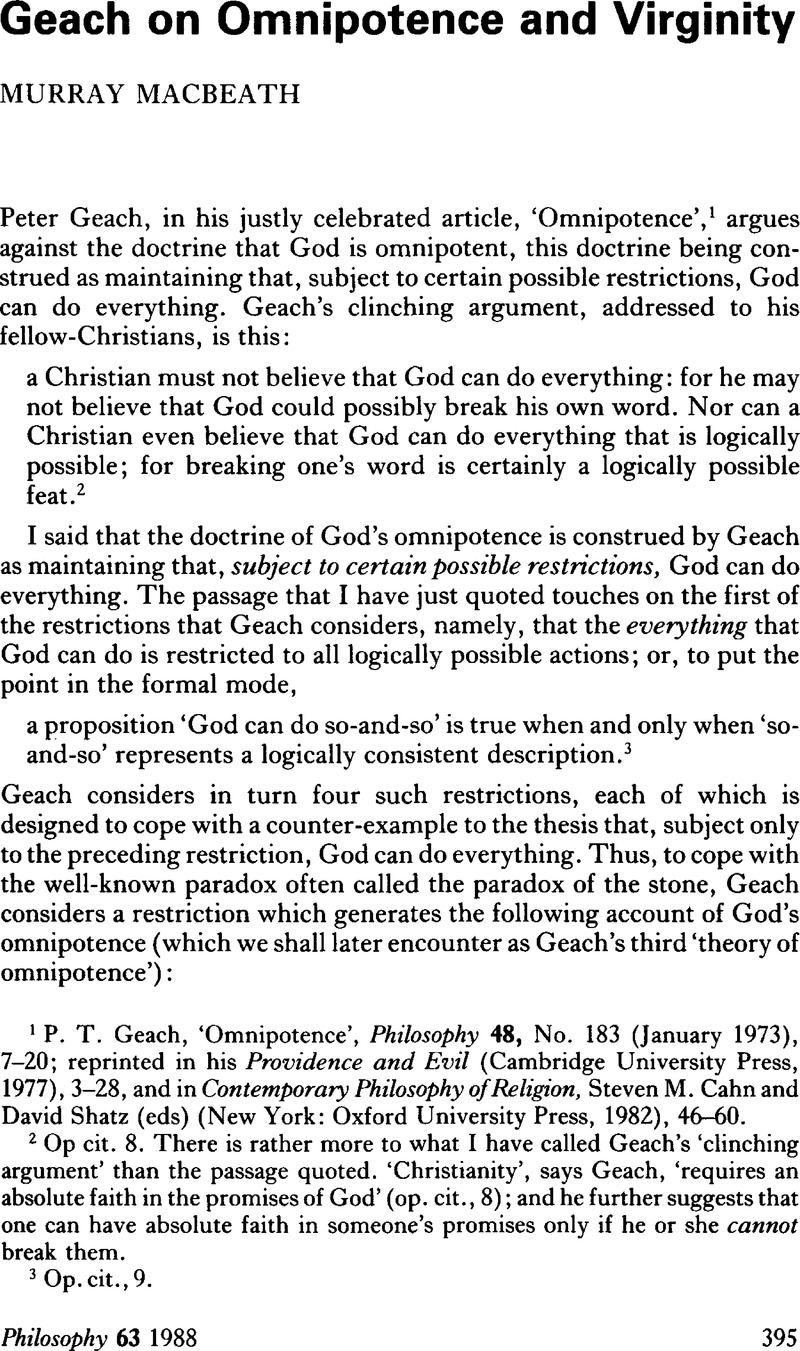No CrossRef data available.
Published online by Cambridge University Press: 30 January 2009

1 Geach, P. T., ‘Omnipotence’, Philosophy 48, No. 183 (01 1973), 7–20CrossRefGoogle Scholar; reprinted in his Providence and Evil (Cambridge University Press, 1977), 3–28Google Scholar, and in Contemporary Philosophy of Religion, Cahn, Steven M. and Shatz, David (eds) (New York: Oxford University Press, 1982), 46–60.Google Scholar
2 Op cit. 8. There is rather more to what I have called Geach's ‘clinching argument’ than the passage quoted. ‘Christianity’, says Geach, , ‘requires an absolute faith in the promises of God’ (op. cit., 8)Google Scholar; and he further suggests that one can have absolute faith in someone's promises only if he or she cannot break them.
3 Op. cit., 9.
4 Op. cit., 9 (italics removed).
5 Op. cit., 9.
6 The word ‘restriction’ is mine: my exposition fo Geach's theories of omnipotence does not always use the same terminology as his own. He does, however, say (op. cit., 15) that the third theory ‘imposes a more restrictive condition than the second theory’.
7 Op.cit., 15.
8 Geach says only ‘if it so happens that Miss X already has lost her virginity’ (op. cit., 15; my italics); that is to say, he does not stipulate that Miss X has lost her virginity.
9 Op. cit., 9
10 Op. cit. 9.